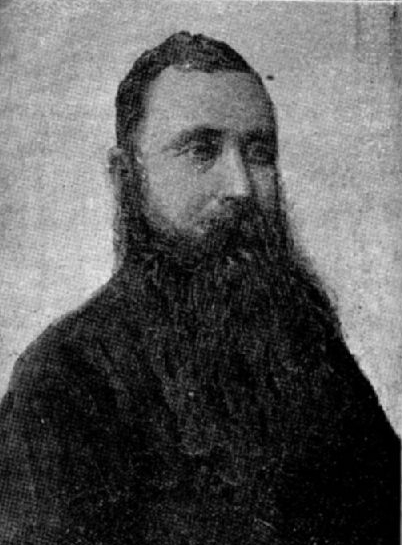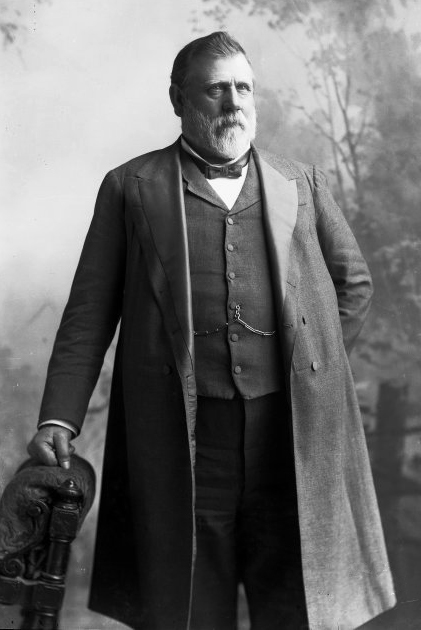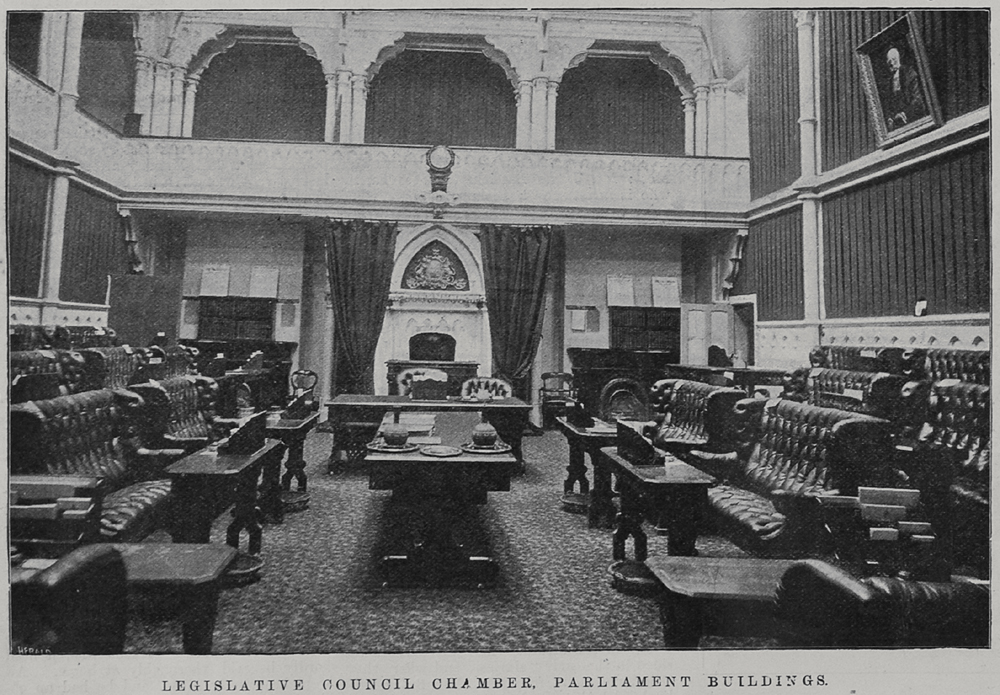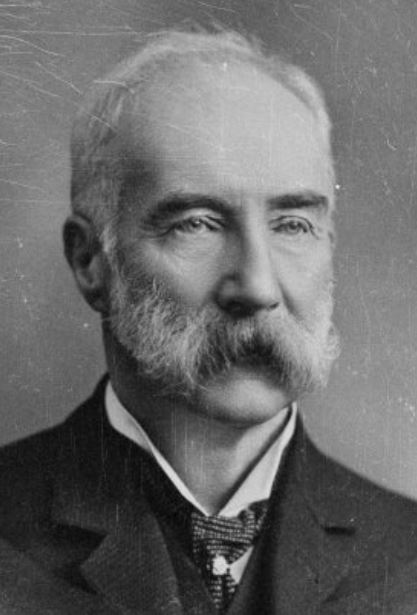|
Wakatipu (New Zealand Electorate)
Wakatipu was a parliamentary electorate in the Otago region of New Zealand, from 1871 to 1928. Population centres The electorate was located in Otago and centred on Lake Wakatipu and Queenstown. Wānaka was always covered by the electorate. When the electorate was formed, it replaced the Hampden electorate (which did not, in the end, extend all the way to the east coast and thus did not include the township of Hampden itself). Through the 1927 electoral redistribution, the Wakatipu electorate was replaced by the Central Otago electorate (later renamed Otago Central). History The Wakatipu electorate was formed for the , which was won by Charles Haughton, who resigned late in December of that year. The resulting was won by Bendix Hallenstein, who resigned again in 1873. Vincent Pyke won the . He served until the end of the parliamentary term and successfully contested the 1875 election in the electorate. Pyke was succeeded by Henry Manders in the 1876 election. At the n ... [...More Info...] [...Related Items...] OR: [Wikipedia] [Google] [Baidu] |
New Zealand Electorates
An electorate or electoral district ( mi, rohe pōti) is a geographical constituency used for electing a member () to the New Zealand Parliament. The size of electorates is determined such that all electorates have approximately the same population. Before 1996, all MPs were directly chosen for office by the voters of an electorate. In New Zealand's electoral system, 72 of the usually 120 seats in Parliament are filled by electorate members, with the remainder being filled from party lists in order to achieve proportional representation among parties. The 72 electorates are made up from 65 general and seven Māori electorates. The number of electorates increases periodically in line with national population growth; the number was increased from 71 to 72 starting at the 2020 general election. Terminology The Electoral Act 1993 refers to electorates as "electoral districts". Electorates are informally referred to as "seats", but technically the term '' seat'' refers to an electe ... [...More Info...] [...Related Items...] OR: [Wikipedia] [Google] [Baidu] |
Thomas Fergus
Thomas Fergus (6 April 1850 or 1851 – 29 September 1914) was a 19th-century New Zealand politician. Early life Thomas Fergus was born in Ayr Scotland on 6 April 1850. There is some question as to his date of birth as the New Zealand Government records are two years different from this birth record, and his newspaper obituary gives 1851 as the birth year. His father was also Thomas Fergus. It is uncertain when his father was born as there is no birth certificate to coincide with the date of 1815, however there is record of him in both 1851 and 1861 census for Scotland, and the age in those suggest that his birth was in 1807. His mother Annie McGechin is also found in census records but no birth certificate has been found to verify her date of birth, although the census suggests her date of birth to be in 1810. In the 1851 census for Scotland the household included his paternal grandmother Elizabeth Fergus. The family is registered as living in Gordon Place, St Quivox, Ayr at th ... [...More Info...] [...Related Items...] OR: [Wikipedia] [Google] [Baidu] |
1928 Disestablishments In New Zealand
Nineteen or 19 may refer to: * 19 (number), the natural number following 18 and preceding 20 * one of the years 19 BC, AD 19, 1919, 2019 Films * ''19'' (film), a 2001 Japanese film * ''Nineteen'' (film), a 1987 science fiction film Music * 19 (band), a Japanese pop music duo Albums * ''19'' (Adele album), 2008 * ''19'', a 2003 album by Alsou * ''19'', a 2006 album by Evan Yo * ''19'', a 2018 album by MHD * ''19'', one half of the double album ''63/19'' by Kool A.D. * ''Number Nineteen'', a 1971 album by American jazz pianist Mal Waldron * ''XIX'' (EP), a 2019 EP by 1the9 Songs * "19" (song), a 1985 song by British musician Paul Hardcastle. * "Nineteen", a song by Bad4Good from the 1992 album ''Refugee'' * "Nineteen", a song by Karma to Burn from the 2001 album ''Almost Heathen''. * "Nineteen" (song), a 2007 song by American singer Billy Ray Cyrus. * "Nineteen", a song by Tegan and Sara from the 2007 album '' The Con''. * "XIX" (song), a 2014 song by Slipknot. ... [...More Info...] [...Related Items...] OR: [Wikipedia] [Google] [Baidu] |
1870 Establishments In New Zealand
Year 187 ( CLXXXVII) was a common year starting on Sunday (link will display the full calendar) of the Julian calendar. At the time, it was known as the Year of the Consulship of Quintius and Aelianus (or, less frequently, year 940 ''Ab urbe condita''). The denomination 187 for this year has been used since the early medieval period, when the Anno Domini calendar era became the prevalent method in Europe for naming years. Events By place Roman Empire * Septimius Severus marries Julia Domna (age 17), a Syrian princess, at Lugdunum (modern-day Lyon). She is the youngest daughter of high-priest Julius Bassianus – a descendant of the Royal House of Emesa. Her elder sister is Julia Maesa. * Clodius Albinus defeats the Chatti, a highly organized German tribe that controlled the area that includes the Black Forest. By topic Religion * Olympianus succeeds Pertinax as bishop of Byzantium (until 198). Births * Cao Pi, Chinese emperor of the Cao Wei state (d. 226) * G ... [...More Info...] [...Related Items...] OR: [Wikipedia] [Google] [Baidu] |
Historical Electorates Of New Zealand
History (derived ) is the systematic study and the documentation of the human activity. The time period of event before the invention of writing systems is considered prehistory. "History" is an umbrella term comprising past events as well as the memory, discovery, collection, organization, presentation, and interpretation of these events. Historians seek knowledge of the past using historical sources such as written documents, oral accounts, art and material artifacts, and ecological markers. History is not complete and still has debatable mysteries. History is also an academic discipline which uses narrative to describe, examine, question, and analyze past events, and investigate their patterns of cause and effect. Historians often debate which narrative best explains an event, as well as the significance of different causes and effects. Historians also debate the nature of history as an end in itself, as well as its usefulness to give perspective on the problems of the p ... [...More Info...] [...Related Items...] OR: [Wikipedia] [Google] [Baidu] |
James Whyte Kelly
James Whyte Kelly (1855 – 15 December 1938) was a 19th-century New Zealand politician, initially of the Liberal Party but later an Independent Liberal. Biography Kelly was born in 1855 at Carluke, South Lanarkshire, Scotland. He became an orphan aged 14. He learned the trade of a tailor, and married Elizabeth Millar, the daughter of James Millar of Motherwell in Lanarkshire. The couple emigrated in 1875 on the ''Aldergrove'' to New Zealand, landing in Port Chalmers in Otago. They later moved south to Invercargill. He represented the Invercargill electorate in the House of Representatives from 1890 Events January–March * January 1 ** The Kingdom of Italy establishes Eritrea as its colony, in the Horn of Africa. ** In Michigan, the wooden steamer ''Mackinaw'' burns in a fire on the Black River. * January 2 ** The steamship .... He was in favour of land nationalisation and progressive taxes. In 1895, he broke away from the Liberal Party and became an I ... [...More Info...] [...Related Items...] OR: [Wikipedia] [Google] [Baidu] |
1899 New Zealand General Election
The 1899 New Zealand general election was held on 6 and 19 December in the European and Māori electorates, respectively, to elect 74 MPs to the 14th session of the New Zealand Parliament. The election was again won by the Liberal Party, and Richard Seddon remained Prime Minister. 1896 electoral redistribution The last electoral redistribution was undertaken in 1896 for the , and the same electorates were used again. 34 seats were located in the North Island, 36 were in the South Island, and the remaining four were Māori electorates. Since the 1890 electoral redistribution, the four main centres had electorates with three seats each. The election The 1899 election was held on Wednesday, 6 December in the general electorates, and on Tuesday, 19 December in the Māori electorates to elect a total of 74 MPs to the 14th Parliament. A total number of 373,744 (77.6%) voters turned out to vote. In three electorates there was only one candidate, and they were thus returned unopposed. Tw ... [...More Info...] [...Related Items...] OR: [Wikipedia] [Google] [Baidu] |
New Zealand Liberal Party
The New Zealand Liberal Party was the first organised political party in New Zealand. It governed from 1891 until 1912. The Liberal strategy was to create a large class of small land-owning farmers who supported Liberal ideals, by buying large tracts of Māori land and selling it to small farmers on credit. The Liberal Government also established the basis of the later welfare state, with old age pensions, developed a system for settling industrial disputes, which was accepted by both employers and trade unions. In 1893 it extended voting rights to women, making New Zealand the first country in the world to enact universal adult suffrage. New Zealand gained international attention for the Liberal reforms, especially how the state regulated labour relations. It was innovating in the areas of maximum hour regulations and compulsory arbitration procedures. Under the Liberal administration the country also became the first to implement a minimum wage and to give women the right ... [...More Info...] [...Related Items...] OR: [Wikipedia] [Google] [Baidu] |
James Horn
James Horn (5 February 1855 – 11 December 1932) was a Liberal Party Member of Parliament from Otago, New Zealand. Biography Early life Horn was born in Inverkethney, Banffshire, Scotland and came to Otago in 1879. He was a storekeeper at Bannockburn, Otago from 1883 to 1928, when he moved to Dunedin. Political career He won the Wakatipu electorate in the 1919 general election, and held it to 1928, when he retired. In parliament he supported construction of the Otago Central Railway to Clyde and then Cromwell, and the breaking-up of large estates. A bridge on what is now over the Clutha River at Albert Town opened in 1930 and was named James Horn Bridge. From 1920 until 1925 he was the Liberal Party's junior whip A whip is a tool or weapon designed to strike humans or other animals to exert control through pain compliance or fear of pain. They can also be used without inflicting pain, for audiovisual cues, such as in equestrianism. They are generally e .... N ... [...More Info...] [...Related Items...] OR: [Wikipedia] [Google] [Baidu] |
Reform Party (New Zealand)
The Reform Party, formally the New Zealand Political Reform League, was New Zealand's second major political party, having been founded as a conservative response to the original Liberal Party. It was in government between 1912 and 1928, and later formed a coalition with the United Party (a remnant of the Liberals), and then merged with United to form the modern National Party. Foundation The Liberal Party, founded by John Ballance and fortified by Richard Seddon, was highly dominant in New Zealand politics at the beginning of the 20th century. The conservative opposition, consisting only of independents, was disorganised and demoralised. It had no cohesive plan to counter the Liberal Party's dominance, and could not always agree on a single leader — it was described by one historian as resembling a disparate band of guerrillas, and presented no credible threat to continued Liberal Party rule. Gradually, however, the Liberals began to falter — the first blow came with ... [...More Info...] [...Related Items...] OR: [Wikipedia] [Google] [Baidu] |
New Zealand Legislative Council
The New Zealand Legislative Council was the upper house of the General Assembly of New Zealand between 1853 and 1951. An earlier arrangement of legislative councils for the colony and provinces existed from 1841 when New Zealand became a colony; it was reconstituted as the upper house of a bicameral legislature when New Zealand became self-governing in 1852, which came into effect in the following year. Unlike the elected lower house, the House of Representatives, the Legislative Council was wholly appointed by the governor-general. The New Zealand Constitution Act 1852 had authorised the appointment of a minimum of ten councillors. Beginning in the 1890s, the membership of the upper house became controlled by government of the day. As a result, the Legislative Council possessed little influence. While intended as a revising chamber, in practice, debates and votes typically simply replicated those in the lower house. It was abolished by an Act of Parliament in 1950, with ... [...More Info...] [...Related Items...] OR: [Wikipedia] [Google] [Baidu] |
William Fraser (New Zealand Politician, Born 1840)
Sir William Fraser (1840 – 16 July 1923) was an Independent Conservative then Reform Party member of parliament in New Zealand. Biography Early life Fraser was born in India, the son of Captain Hugh Fraser of the 5th Madras Light Cavalry. He received his education at Elizabeth College in Guernsey, Victoria College in Jersey, and the Lycée de St Brieuc in Brittany, France. He came to New Zealand in September 1858 for farming. Together with Alfred Rowland Chetham-Strode, he took up Earnscleugh Station on the Earnscleugh River. In 1874, he married Ellen Isabel Strode, the daughter of his business partner, in 1874. Political career Fraser was a member of the Otago Provincial Council (1867–1870). He was a member of the inaugural Vincent County from 1877 until 1893, the last ten years as chairman. He won the Wakatipu electorate in the 1893 general election, and retired in 1919. He served on the Legislative Council from 1919 to 1923 when he died. Under Prime ... [...More Info...] [...Related Items...] OR: [Wikipedia] [Google] [Baidu] |

.jpg)





